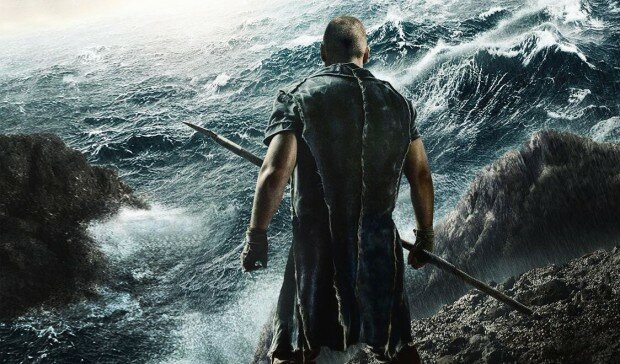I truly can’t remember the last time a studio-released “epic” captured me as much as Darren Aronofsky’s “Noah” did. For the first time in a long time, it genuinely felt like I was viewing a passion project.
Hollywood has been obsessed with vacant spectacle for years. Studios want big returns and audiences thirst for unbarred savagery, but no one seemed interested in monumental films with artistic value. Everything seemed to peak in the early 2000s when the “Lord of the Rings” and “Harry Potter” film series were in full swing, and it was only a matter of time before overall quality started to waiver.
With the recent onslaught of formulaic Marvel superheroes, re-re-renditions of classics (“The Hobbit”) and general destruction porn, there has been very little (that wasn’t independently made) to keep my interest. Hollywood’s churning out everything we’ve already seen, heard and felt, but Aronofsky has resuscitated the film industry by bringing something new – and awesome — to the table.
In their telling of Noah, Aronofsky and co-writer & producer Ari Handel create a pre-diluvian world complete with fallen angels, rock monsters and cities overrun by cannibalistic chaos. Russell Crowe is absolutely riveting as the titular character — this is hands down one of his best performances.

Noah sees the evils of the world and is plagued by horrific, apocalyptic visions. After visiting his father Methuselah (played by Sir Anthony Hopkins) he believes that the Creator wants him to protect the innocent from what is to come. In this case the innocents are animals and Noah’s family; the Creator’s wrath spares nothing and nobody else.
Those looking for a feel-good Christian tale or even an indictment of modern society will probably be disappointed. Noah is a complex morality play, where nobody is good or evil and everyone’s actions – even those of the almighty Creator – are questionable.
Anyone familiar with Aronofsky’s fims (“Pi,” “Requiem for a Dream,” “Black Swan”) knows that his tales are rarely pleasant and never simple. Some worried that a big studio and budget might compromise the creative vision of such a unique director. Skeptics need not fear; despite its $140 million budget, “Noah” retains many of Aronofsky’s narrative and visual trademarks.

The film’s set-pieces are unique, impressive and engaging. As highlighted on all the trailers, there is a small “battle” scene as the flood begins. I’ve seen untold numbers of heavily CG-d sequences like this. However, because of the craftsmanship of both ILM (Industrial Light & Magic) designs and Director of Photography Matthew Libatique’s visuals, it feels new and exciting. Composer Clint Mansell (another frequent collaborator) delivers a tremendous score; fans of “The Fountain” may even recognize echoes of the piece “Death is the Road to Awe,” a beautiful melody from that film.
It’ll be interesting to see the total box office gross for Noah and the impression it leaves with religious groups. Aronofsky seems to put self-worth and what one sees as meritorious on a pedestal, both in the world of “Noah” and in humanity. This is what sets “Noah” apart from the cliché Old Testament flicks.
Hopefully movie-goers won’t see the biblical title and misconstrue “Noah” for some kind of preachy cash-cow. The film is definitely an Aronofsky classic; exorbitant in introspective, beautifully thought provoking and an overall artistic delight. If it reflects the biblical rendition of the story of Noah in any way, it is that virtuous endeavors can have devastating effects, regardless of your relationship with the Lord.





